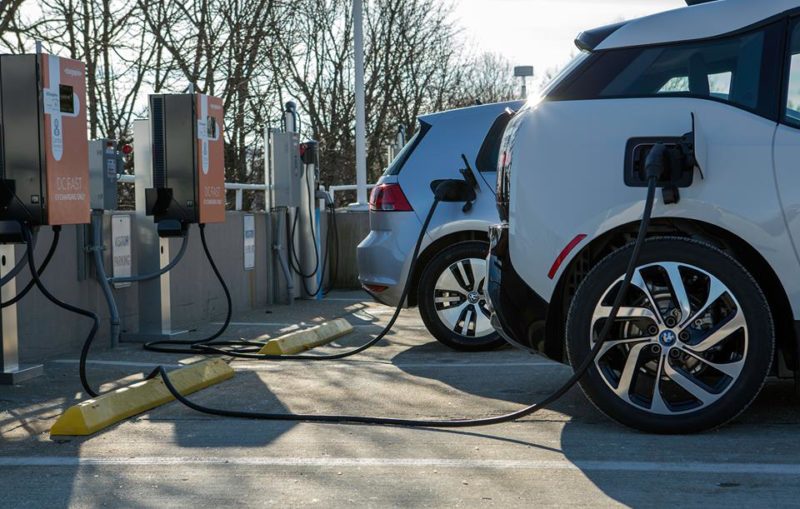The ECA Office for North Africa on Monday, December 9, 2024, launched in Lusaka the second phase of the Morocco – DRC – Zambia Regional Electric Mobility Value Chain Development Project, with the participation of Moroccan, Congolese and Zambian representatives.

“The complementarities between our countries’ resources and experiences are sufficient for the development of robust battery and precursor production value chains. This can play a key role in the transition of our economies to a post-fossil fuel era. We are also aware that we cannot achieve socio-economic transformation alone: strategic partnerships such as this are important for accelerating the positive trajectory of our development agenda,” said Crusivia Hichikumba, Permanent Secretary for Investment and Industrialisation at the Zambian Ministry of Commerce, Industry and Trade at the opening of the proceedings.
The development of carbon-free transport is essential to limit global warming. In Africa, vehicles are often older, high emitters of greenhouse gases, and public transport infrastructure is in a deplorable state: Africa should take advantage of electric mobility to improve its economic, environmental and social conditions, explained Marie Pascale Diatuka Malanda, Coordinator of the Congolese Agency for Ecological Transition and Sustainable Development.
Richly endowed with strategic minerals including cobalt and copper, the Democratic Republic of Congo has a central role to play in the development of electric mobility value chains, she stressed, insisting on the need to reflect on the opportunities for synergies of the technical capacities of the three countries, transfer of technologies and knowledge, and sharing of good practices for green, low-carbon industrialisation.
Electric mobility is a vector of economic, social and environmental development, said Idriss Addahbi, Head of the Monitoring and Strategy Division at the Moroccan Ministry of Industry and Trade, who discussed how his country has become in 20 years one of the most competitive platforms in the world in the automotive sector and an African leader with one million vehicles produced per year including four models of electric cars: “By developing a regional value chain, we create jobs, we reduce our dependence on fossil fuels and we contribute to the fight against climate change. By joining forces, we can become a world leader in the field of electric mobility.” he stressed.
“This workshop is not just about dialogue; it is a call to action. Together, we must align our visions, pool our resources and leverage the unique strengths of Zambia, Morocco and the DRC. By developing concrete policies, measures and initiatives, we can unlock Africa’s potential in the global e-mobility value chain, create jobs, foster innovation and contribute to sustainable development,” said Adam Elhiraika, Director of the ECA Office for North Africa.
The meeting aims to develop a detailed roadmap and implementation plan, as well as a partnership framework that will guide these regional value chains. The AfCFTA is a central pillar of this initiative as it provides a platform to harmonise policies and enable functional regional integration. It can serve as a catalyst to scale up electric mobility solutions, improve the flow of goods, expertise and capital, and boost regional economic growth, he explained.
Organised from December 9 to 11, 2024, the workshop on “Development of the regional value chain for electric mobility (DRC – Morocco – Zambia)” was held as part of a project initiated in 2023 by the ECA Office in North Africa with the ambition of facilitating the establishment of regional value chains for electric mobility in Africa and positioning the continent as a central player in the global market for electric vehicle batteries.
Drawing on the continent’s abundant mineral resources and the expertise of countries such as Morocco, the project focuses, in its current phase, on strengthening the technical capacities of the countries concerned and establishing a partnership framework to facilitate the development of value chains in the areas of battery production, vehicle assembly and the development of charging infrastructure.
Organised with the participation of public decision-makers, representatives of the public and private sectors and technical experts from the DRC, Morocco and Zambia, the workshop aims to strengthen the expertise of public decision-makers and technical committees in charge of the project; facilitate the exchange of knowledge through the creation of networks and platforms dedicated to each regional value chain; facilitate the validation of partnership frameworks, roadmaps and action plans; and encourage the sharing of good practices as well as the development of projects and initiatives between the project member countries.
The work will culminate on Thursday, December 12, 2024, with the organisation of a high-level policy dialogue on the development of regional automotive and electric mobility value chains, jointly organised by the ECA Offices in North Africa and Southern Africa.
